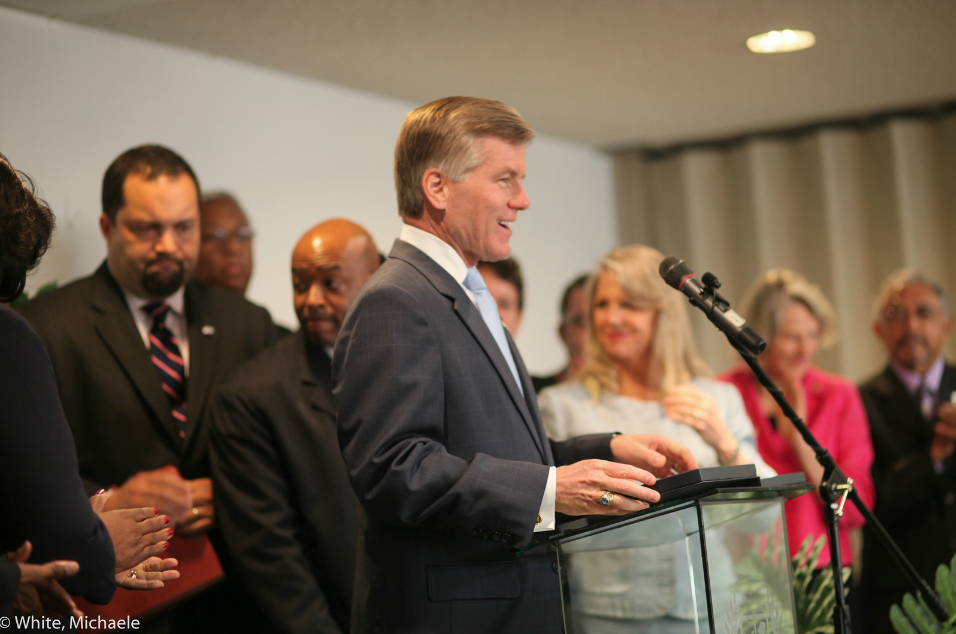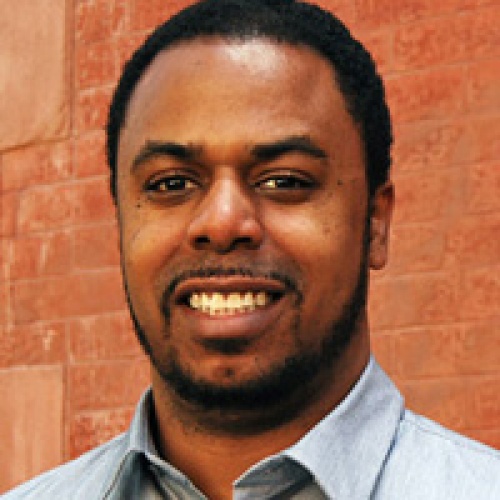Virginia unveils plan for restoring voting rights to former felons

In May, Virginia Gov. Bob McDonnell announced a historic win for voting rights: the automatic restoration of those rights for former nonviolent felony offenders on an individualized basis. It was a few steps short of what voting rights advocates have been calling for, which is full automatic rights restoration for all former felons, but they acknowledged it was a big step forward.
All McDonnell, a Republican, left out of his May announcement was how exactly he was going to do it. After consulting with a number of stakeholder organizations invested in helping the formerly incarcerated, McDonnell this week unveiled the how.
The biggest problem with restoring rights on a person-by-person basis is finding all of the Virginians with nonviolent felonies to inform them of their new voter status.
"We could easily find the felons who were currently in the system or who had previously expressed an interest in getting their rights back," said Virginia Commonwealth Secretary Janet Kelly in a statement. "However, there is no accurate comprehensive database of felons who are not currently in the legal or corrections system and have been released from probation, and the stakeholder group helped us to find creative solutions to meet that challenge."
Failing to locate and inform people about their new voter eligibility could lead to continued disenfranchisement -- eligible voters failing to register because they think they are ineligible. It could also result in inaccurate claims of voter fraud, as I found in Florida last year.
McDonnell and Kelly worked with a plethora of groups -- Virginia New Majority, Virginia Organizing, Holla Back and Restore, S.O.B.E.R. House, STEP UP Inc., Bridging the Gap in Virginia, Open Door Communications, NOVA Coalition, Resource Information Help for the Disadvantaged, the NAACP Richmond chapter, the Virginia NAACP State Conference and the Advancement Project -- to build mechanisms for locating former felons. The state has set up a web page, web forms and a toll-free number so people can find information on their restored rights. The advocacy groups will also help steer people to these resources.
In addition, the state reclassified certain crimes labeled as "violent" felonies -- like statutory burglary and breaking and entering -- as nonviolent so that more can take advantage of the restoration. Information about the rest of the voting rights restoration process can be found here: http://www.governor.virginia.gov/News/viewRelease.cfm?id=1895
The process is open only to those who have served their entire sentence, including probation or parole, and who have paid all of their court fees, fines and other costs related to their imprisonment. As many as 700 people complete their sentences in Virginia every month, according to Penda Hair, co-director of the civil rights law organization Advancement Project.
"Gov. McDonnell's plan creates a path for many people who have paid their debt to society to fully participate in society and stand alongside their neighbors at the voting booth," said Hair in a statement. "We hope that Virginia's list of violent crimes will be further narrowed to allow more citizens to experience a final measure of healing and full freedom."
Jon Liss, executive director of Virginia New Majority, said his organization started outreach shortly after McDonnell announced the rights restoration plan.
"Now that the new process has been unveiled, we are going to step up our efforts," he said. "Our immediate focus centers on educating people about this process and encourag[ing] those who are now eligible to vote to step forward so they can participate in this year's elections."
